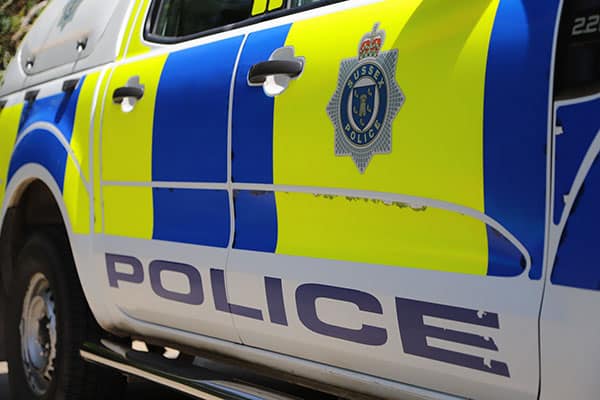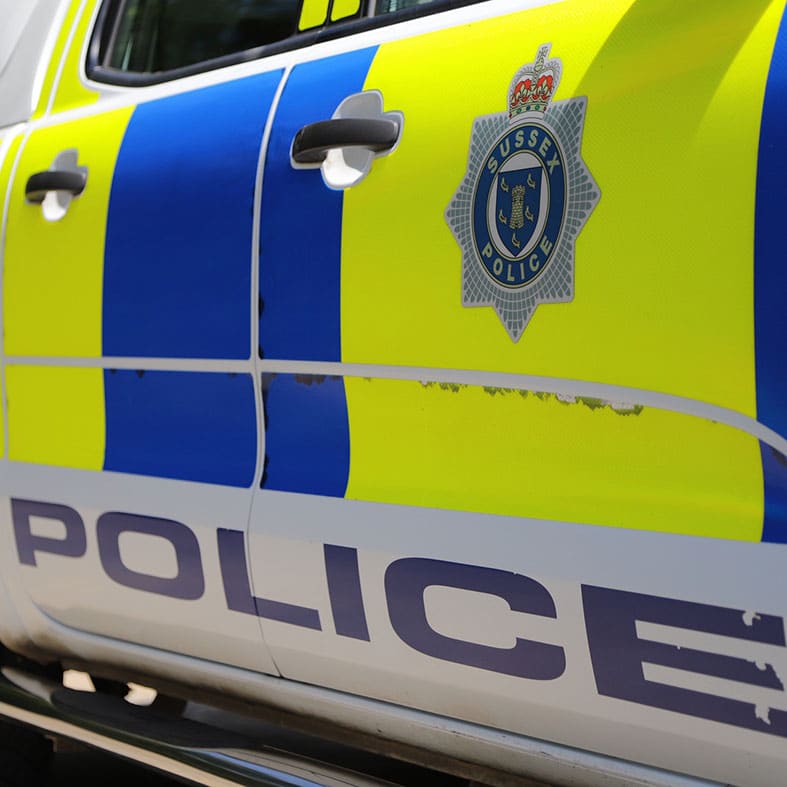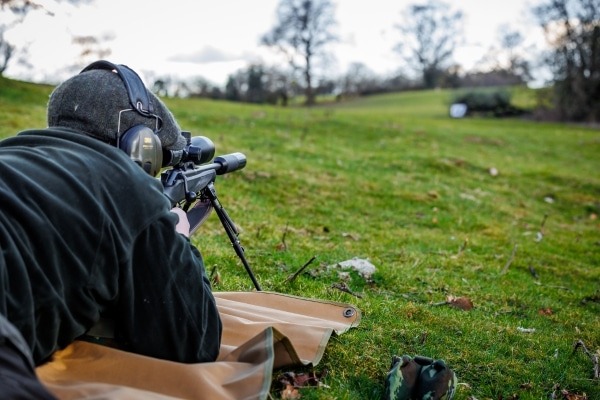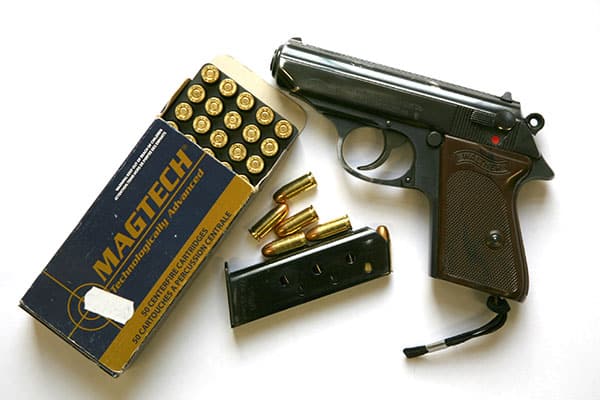
Be cautious about cautions
Lachlan Nisbet, partner at Brabners lawyers, advises you to be aware of accepting a caution for a minor offence, as these can give licensing officers a reason to revoke your certificates.
Get information on the legal shooting season for mammals and birds in the UK.
Apply for funding for your project or make a donation today
Comprehensive information and advice from our specialist firearms team.
Everything you need to know about shotgun, rifle and airgun ammunition.
Find our up-to-date information, advice and links to government resources.
Everything you need to know on firearms law and licensing.
All the latest news and advice on general licences and how they affect you.


Home » Firearms » Police involvement in shooting » Police right of entry and firearms seizures
The police and certain authorities have the right to enter any property without a warrant if, and only if, they believe someone on that property has committed, is about to, or is actually in the process of, committing an offence.
Police are subject to the same laws of trespass as the rest of the public and may only benefit from legal powers if they believe they can apprehend a person who has, is about to, or is actually committing an offence. The only exception to this is if a search warrant is obtained from a magistrate who is satisfied that there are reasonable grounds for issuing one.
It is important to remember where a right of entry is involved, powers vary according to which Act provides for the alleged offence. Warrants may also stipulate conditions with which the executor (eg. police) has to comply. If you are ever served with a warrant, make sure you read it in full.
If police enter a premises, and for example, disturb shoot members to simply make ‘routine checks’ such as to ‘check insurance’ or ‘certificates’ without reasonable grounds for suspecting an offence has or is about to be committed, they may be breaking the law.
If police do not have sufficient grounds for being present on private property, they may even be committing aggravated trespass if they are persistent and obstructive, or even armed trespass if they are armed response officers.
However, it is more likely that police would be committing civil trespass for which occupier is entitled in law to instruct them to leave their premises and ultimately, as the police are still citizens, reasonable force may be used to remove persons if they do not respond to such an instruction. However, while this course of action would be up to the individual occupier’s judgement, BASC would always recommend a sensible and cooperative attitude to this type of situation.
We would suggest cooperation with any attending officers, but to report any persistent officers to a senior officer via telephone rather than using force. Police are usually well briefed of their responsibilities and duties and should always withdraw when asked. The police will wish to remain present on land where there may be a breach of the peace or an immediate threat to life or property.
It is sensible at all times to prevent yourself, family or if on a shoot day, shoot colleagues etc from posing a threat to the police and authorities, especially if guns are being carried and if armed police arrive. It is best that you break, unload and slip your guns until the exact grounds for entry are established. If police have a court warrant, read it in detail and adhere to the warrant to avoid being arrested for obstruction.
If you believe the police have acted illegally or improperly, a complaint should be directed to the chief officer of police for the force concerned or sent to the Independent Police Complaints Commission (IPCC), giving brief details and a statement of the exact complaint.
Firearm seizures undertaken by the police fall into four main categories:
While undertaking their role to protect the public, the police may seize airguns, firearms / shotguns on the grounds of ‘public safety’. Other than the above, there is no power under any Act of Parliament that allows the police to seize firearms “for the public safety.”
The only power that comes remotely close is seizure to prevent a breach of the peace under common law, but once the risk of that breach of the peace has passed, the guns have to be returned.
Should a certificate holder be involved in any act of violence or threat of violence, then you would expect the police to remove the airguns, firearms / shotguns and certificates whilst an enquiry into the incident is undertaken.
The difficulty comes when police officers want to seize airguns, firearms / shotguns for any other reason. There are many other circumstances where police, as a standard operating procedure, wish to remove firearms ‘just in case’. Typically, this takes place where disputes arise such as domestic incidents or when potentially malicious allegations are made.
Often police will phrase questions in such a way that you voluntarily surrender the guns. Should you refuse, the only action the police can take is to make a request to the firearms licensing manager or relevant senior operational officer for the certificate(s) to be revoked.
For low-powered airguns, a letter of revocation cannot be issued as no licensing system exists for them; the police have to rely on convincing you to hand your airguns over. Therefore the police may only seize them if they have ‘reasonable grounds’ that an offence has been or is about to be committed, and includes the reasonable suspicion that the muzzle energy of an air rifle is greater than 12ft lbs (or over 6ft lbs for an air pistol.)
Such seizures may only take place under the Police and Criminal Evidence Act or the Firearms Acts. They can seize anywhere, with or without a warrant.
In most cases involving seizure, you will opt to co-operate with the police. It is a matter of judgement as to whether you co-operate with the police or not; it depends strongly on whether there is evidence against you for whatever reason and how strong you feel your position is.
Always be sure not to be un-cooperative with the police when a genuine power is being cited for the seizure as it may constitute obstruction and lead to further prosecution.
Sometimes by refusing to co-operate it can cause a police officer who uses seizure under the guise of “public safety”, to back off. Though if police do decide to formally revoke a certificate (which should be I writing), the revocation allows a right of appeal. Simply handing over your firearms does not attract that right of appeal and the police may keep your guns for a considerable time without a right of review or appeal.
Alternatively, once revoked and particularly if your case is dropped, you are able to submit a new application for your certificate(s) at any time. However, in difficult cases where the police are unable to prosecute, usually due to technicalities and where there is strong suspicion that someone had been involved in criminal activity, a certificate may not be returned immediately. It may be some months later once the police have allowed for a cooling off period and you can demonstrate that the problem is resolved.
Ultimately where revocations and refusals are concerned, the police should justify as part of the revocation/refusal process that you are either “a danger to public safety or to the peace” for shotgun certificates, or that you are “not fit to be entrusted with a firearm” for firearm certificates.
Afterwards the only option is for a judge to decide whether the police are right or wrong by lodging appeal with the Crown Court. If you find yourself in this position, you must bear in mind that appeal to a Crown Court can be both uncertain and very expensive and any appeal will always be held in abeyance pending the resolution of criminal matters. Always consult a solicitor before lodging an appeal.
If in doubt about why your firearms were seized and what the next stage of the process will be, contact should be made initially with the firearms licensing section of the constabulary concerned.
If this does not prove satisfactory, please contact the BASC firearms team who will be happy to try and resolve any issues. Please ensure that the full facts are given to BASC firearms officers to prevent any misconceptions while trying to ascertain the facts of the incident which lead to the seizure. The full picture is required as it can lead to embarrassment if you fail to mention convictions and/or other incidents which have a bearing on the case.
Note that from the 1 November 2021, the introduction of the Home Office Statutory Guidance put in place a number of safeguards for certificate holders, should they be in the position of having their firearms seized. Section 4:10 of the Guidance states: “When firearms are surrendered or seized, ammunition and the certificate should also be seized, and a receipt and photograph provided detailing the firearms, accessories and ammunition removed.” In addition, Section 4:11 states: “Following surrender or seizure of firearms, a full review should be carried out and the certificate holder advised of the result of the review. The certificate holder should be kept informed of the progress of the review at frequent and regular intervals.” You should reference this guidance and request that it is complied with.
While chief officers are not legally bound by the Statutory Guidance, if they depart from the provisions they must justify the reasons on a case-by-case basis.
Finally, if you feel that the seizure of your firearms has been carried out in an unlawful or disproportionate way, you have the option to complain to the force’s Professional Standards Unit.
Got a question? Email us on firearms@basc.org.uk or call 01244 573 010.
© BASC July 2023

Lachlan Nisbet, partner at Brabners lawyers, advises you to be aware of accepting a caution for a minor offence, as these can give licensing officers a reason to revoke your certificates.

Explaining the law around the addition of quarry shooting conditions to a firearms certificate by police firearms licensing departments.

Information on the use of handguns for humane dispatch in Scotland, England and Wales, including legislation and licence applications.
Sign up to our weekly newsletter and get all the latest updates straight to your inbox.
© 2025 British Association for Shooting and Conservation. Registered Office: Marford Mill, Rossett, Wrexham, LL12 0HL – Registered Society No: 28488R. BASC is a trading name of the British Association for Shooting and Conservation Limited which is authorised and regulated by the Financial Conduct Authority (FCA) under firm reference number 311937.
BASC Direct Ltd is an Introducer Appointed Representative of Agria Pet Insurance Ltd who administer the insurance and is authorised and regulated by the Financial Conduct Authority, Financial Services Register Number 496160. Agria Pet Insurance is registered and incorporated in England and Wales with registered number 04258783. Registered office: First Floor, Blue Leanie, Walton Street, Aylesbury, Buckinghamshire, HP21 7QW. Agria insurance policies are underwritten by Agria Försäkring.
If you have any questions or complaints about your BASC membership insurance cover, please email us. More information about resolving complaints can be found on the FCA website or on the EU ODR platform.